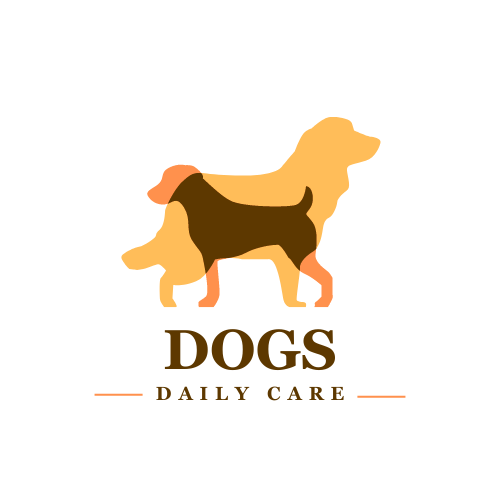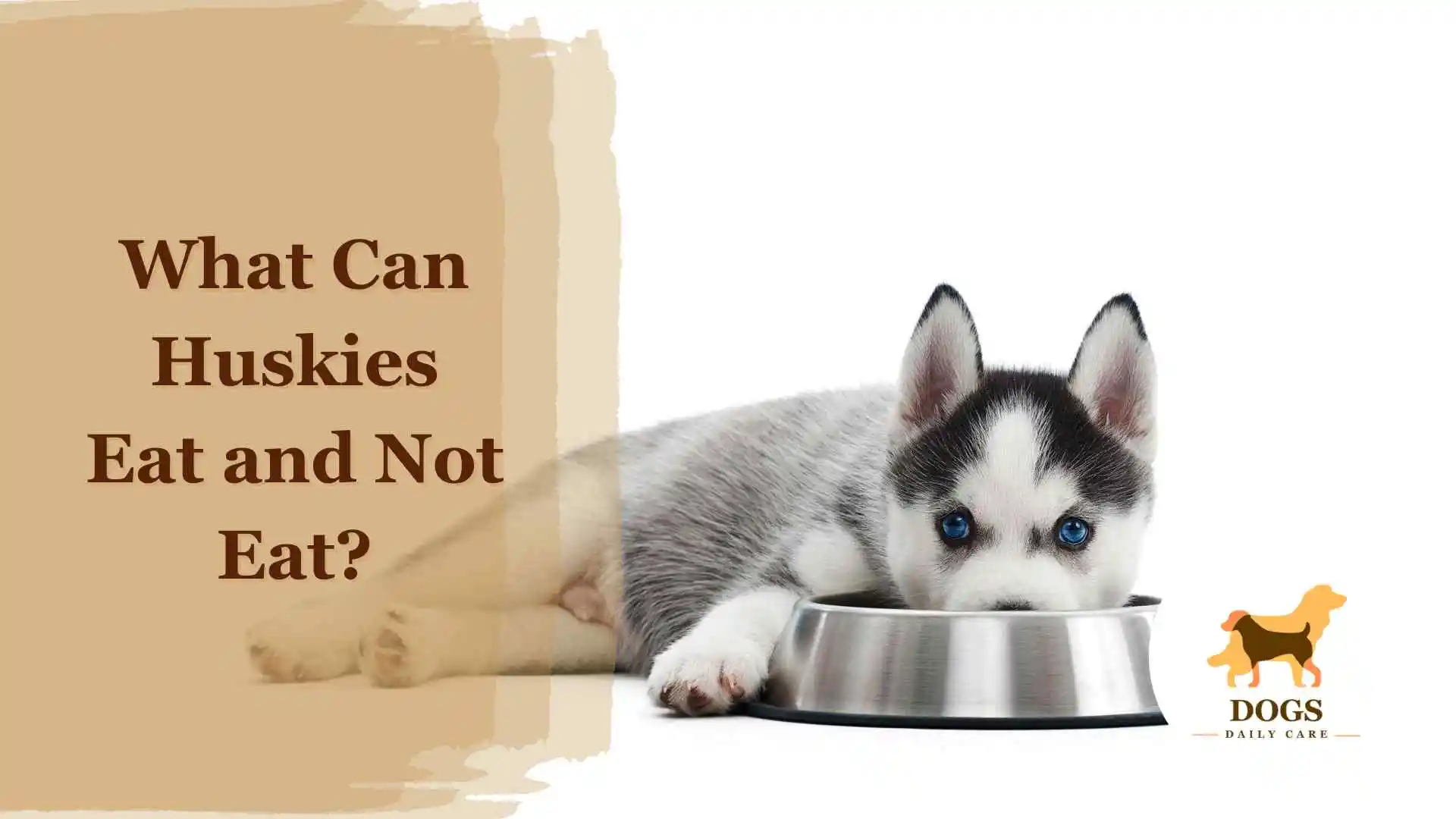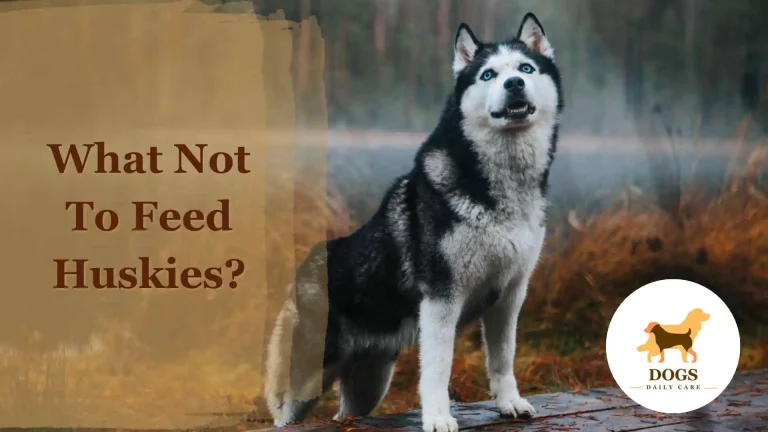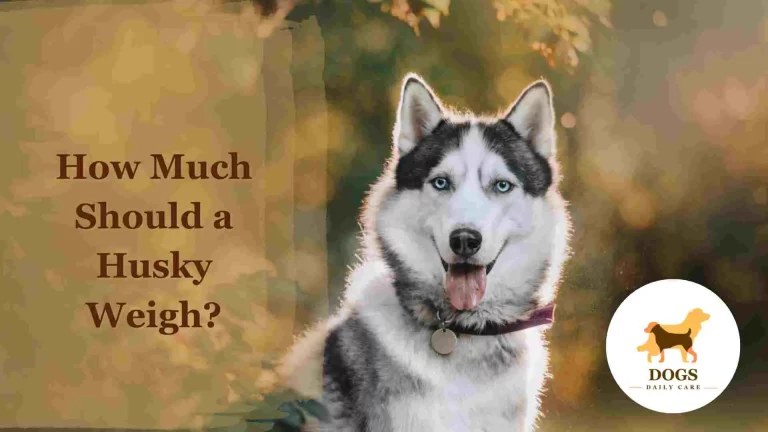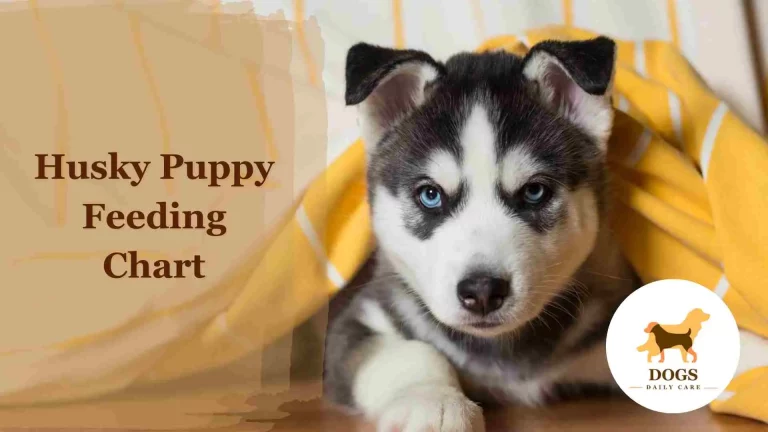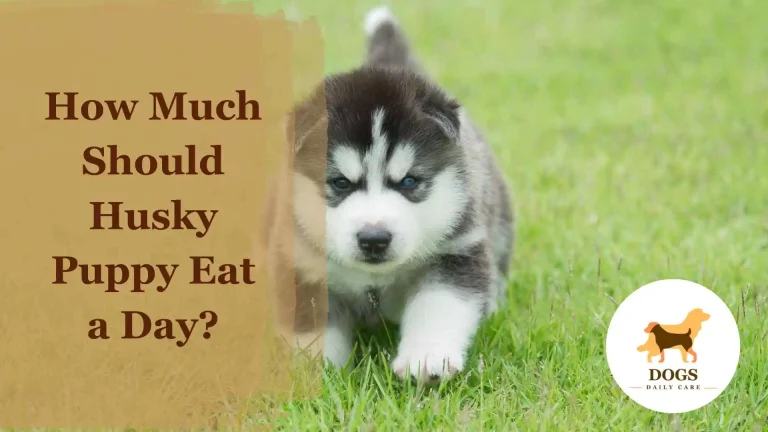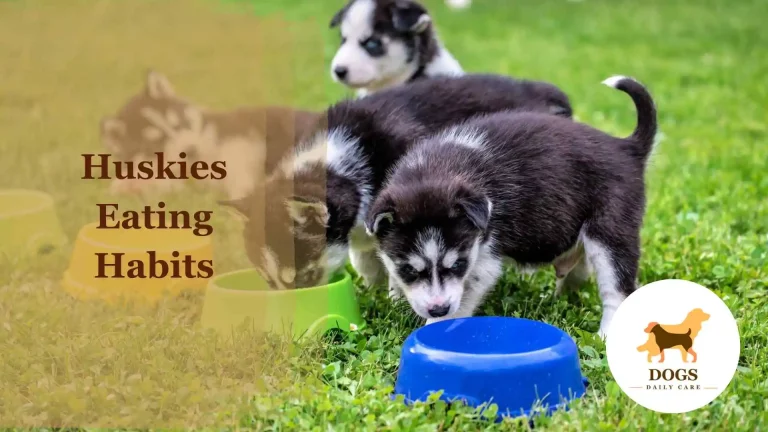What Can Huskies Eat and Not Eat? – An Ultimate Guide
Huskies, with their captivating blue eyes and wolf-like appearance, are one of the most striking and beloved dog breeds. Originally bred in Siberia for sled-pulling, these energetic canines possess a metabolism quite unlike other breeds. Understanding what a Husky can and cannot eat isn’t just about pampering them—it’s about ensuring their vitality and longevity.
In the world of canines, the diet plays a pivotal role in overall health. Just as humans need balanced nutrition, our furry friends do too, and Huskies are no exception. But what exactly constitutes a balanced diet for a Husky? With countless foods available, and myriad myths surrounding dog diets, it’s essential to discern fact from fiction.
In this guide, we’ll delve deep into the dietary needs of Huskies, highlighting the best foods to keep them vibrant and the ones to avoid to ensure they remain safe and healthy. Whether you’re a new Husky parent or a seasoned owner looking to update your knowledge, this article promises valuable insights.
Understanding the Husky Diet: A Glimpse Into
Their Wild Ancestors
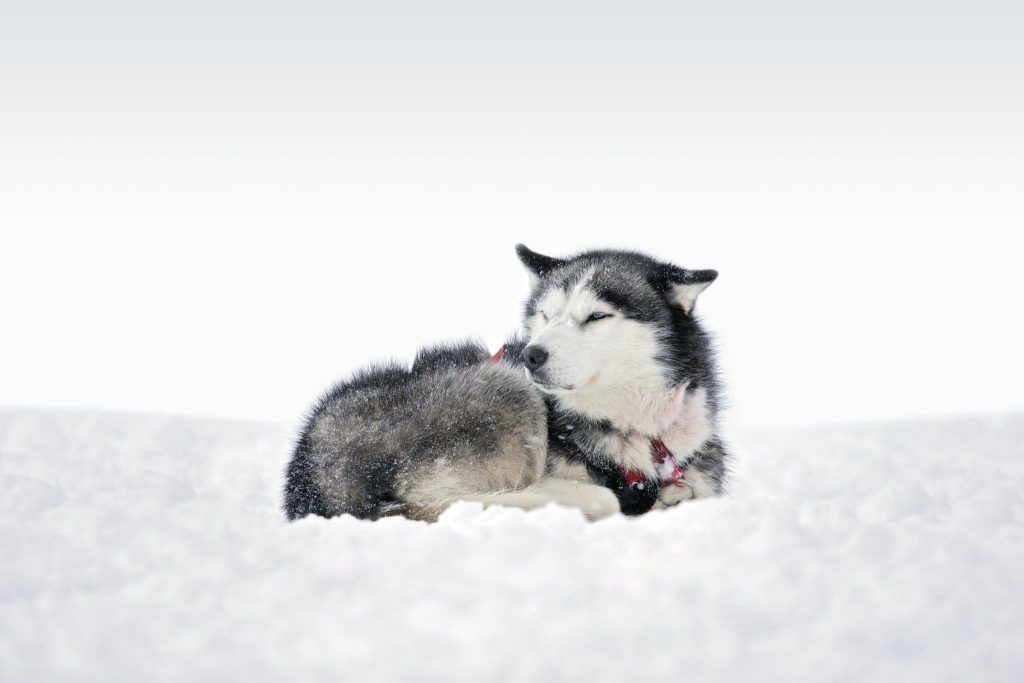
The Siberian Husky, with its majestic appearance and spirited nature, traces its lineage back to the cold, rugged terrains of Siberia. These resilient dogs were initially bred by the Chukchi people, an indigenous tribe, to aid in transportation across vast icy landscapes. Their diet? A balance of wild-caught game, fish, and other natural resources available in those challenging environments.
It’s crucial to understand that while modern-day Huskies might enjoy the comforts of our cozy homes, their digestive systems are still reminiscent of their wild ancestors. In the vast stretches of Siberia, Huskies thrived on protein-rich diets, primarily meat and fish, complemented by the occasional berries and vegetation they’d find. This diet not only provided the energy they needed for endurance but also the essential nutrients to brave the harsh climate.
Translating this ancestral diet to our present-day setting offers valuable insights. While it’s unrealistic (and unnecessary) to replicate this diet exactly, recognizing the natural dietary inclinations of the Husky helps in curating a meal plan that aligns with their genetic makeup. In essence, a diet rich in quality proteins, complemented by certain fruits, vegetables, and grains, mirrors what their ancestors would have consumed, ensuring our Huskies lead a robust and healthy life.
Foods Huskies Can Eat
Every dog lover knows the joy of sharing a snack with their furry companion. With those keen Husky eyes fixed on you, it’s hard to resist tossing a treat their way. But it’s vital to ensure that treat is both safe and nutritious. Let’s embark on a culinary journey tailored to the Siberian Husky, ensuring their meals are as delicious as they are nourishing.
Meat Proteins
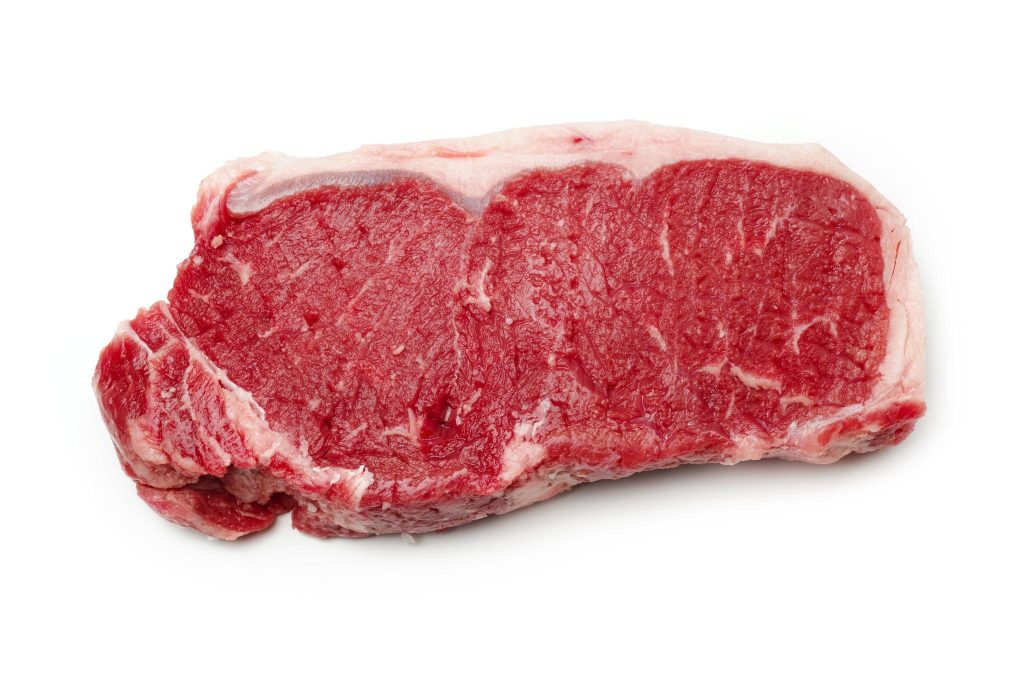
Just like their Siberian ancestors, modern Huskies thrive on meat. Lean cuts of chicken, beef, and lamb provide the essential amino acids and nutrients vital for muscle development and overall health. Rotate between these sources to offer variety and balance.
Fish
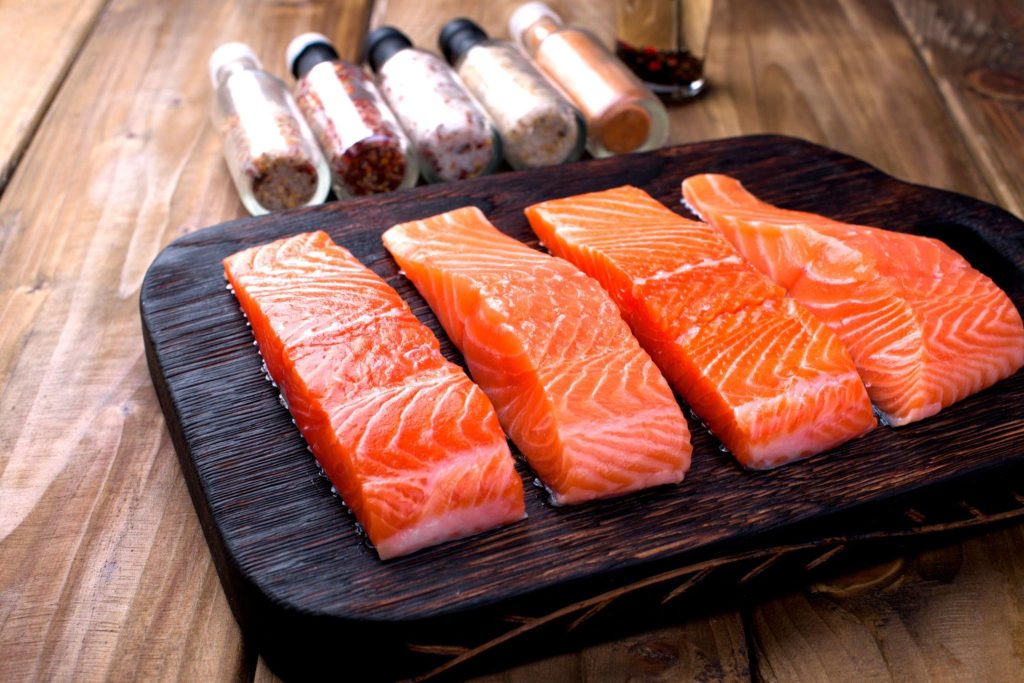
A staple in the Siberian landscape, fish like salmon and sardines are excellent for Huskies. Rich in Omega-3 fatty acids, these fish promote a lustrous coat, reduce inflammation, and boost cognitive health. Ensure the fish is cooked and deboned before serving.
Vegetables
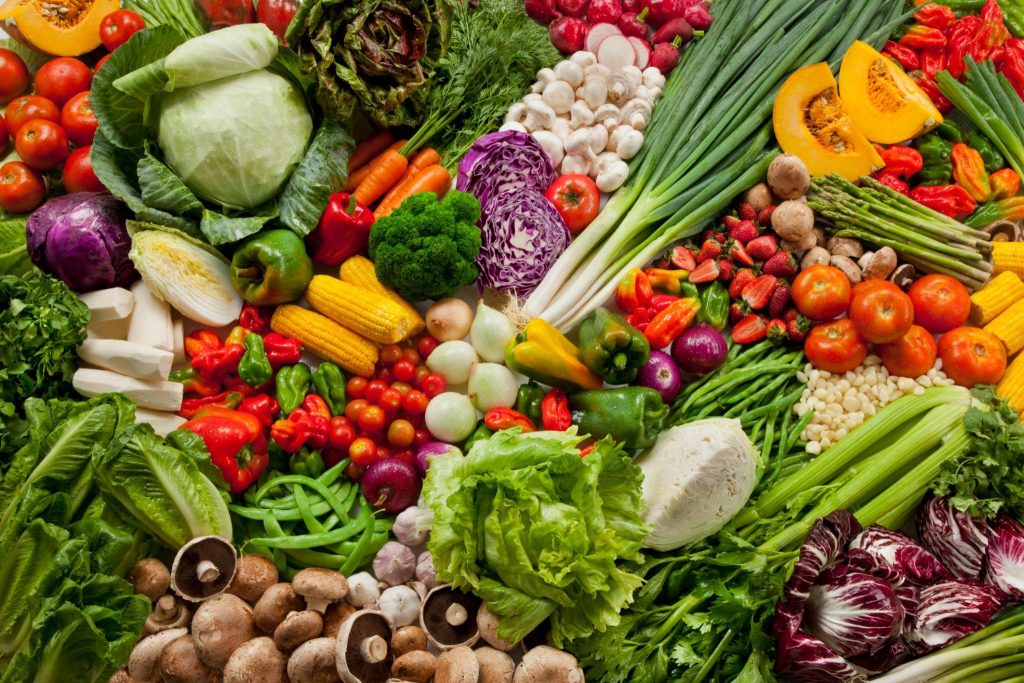
While Huskies are primarily carnivores, certain vegetables add valuable nutrients to their diet. Broccoli, carrots, and green beans are packed with vitamins and minerals, supporting everything from vision to digestion. Remember to serve them cooked or finely chopped to aid digestion.
Fruits
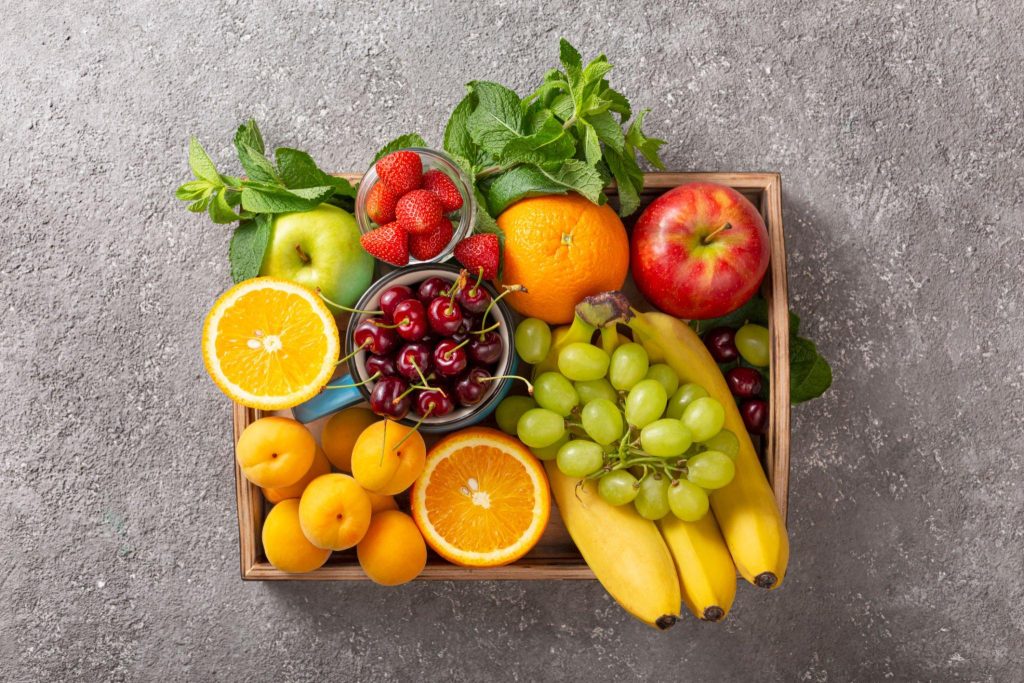
A little fruity treat can be a delightful change of pace for your Husky. Blueberries offer antioxidants, while apples (ensure seeds are removed) provide dietary fiber. Both are excellent for dental health, helping to clean teeth as they munch.
Grains
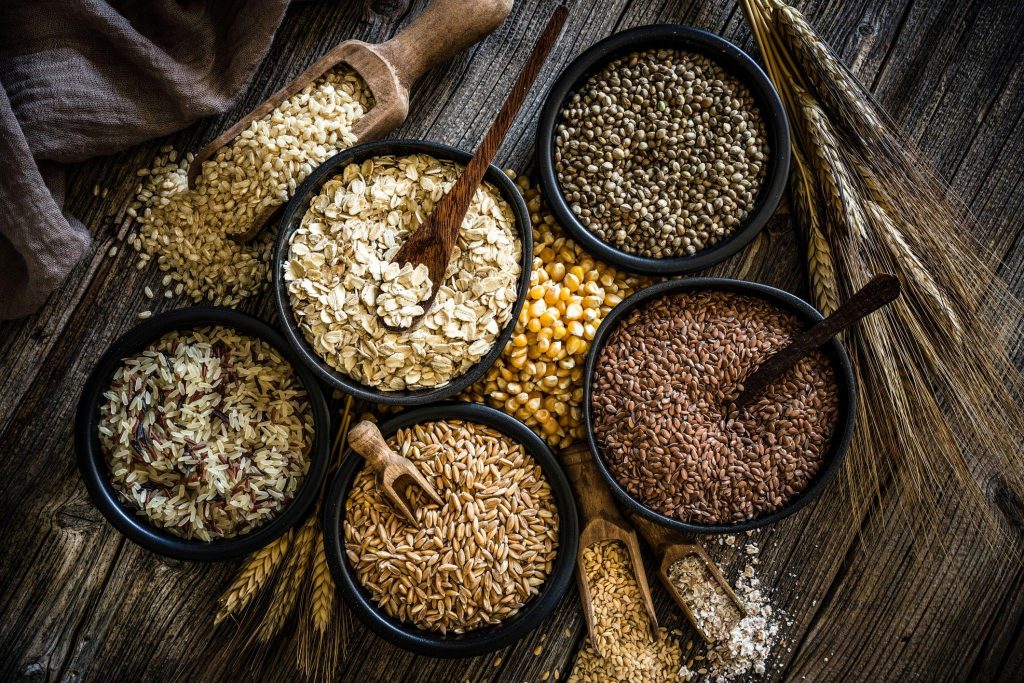
While some dogs might be grain-sensitive, many Huskies can benefit from grains like rice, quinoa, and oats. They provide the necessary carbs for energy, especially vital for this active breed. However, always introduce grains gradually and monitor for any adverse reactions.
Dairy in Moderation
Dairy products like yogurt and cottage cheese can be a tasty treat for Huskies, but moderation is key. Start with small portions to gauge tolerance, as some Huskies can be lactose intolerant.
When crafting meals or treats for your Husky, always prioritize quality. Opting for organic, unprocessed ingredients ensures your four-legged friend gets the best nutrition without the added fillers or chemicals. Remember, a well-fed Husky is a happy and healthy Husky!
Foods Huskies Should Avoid
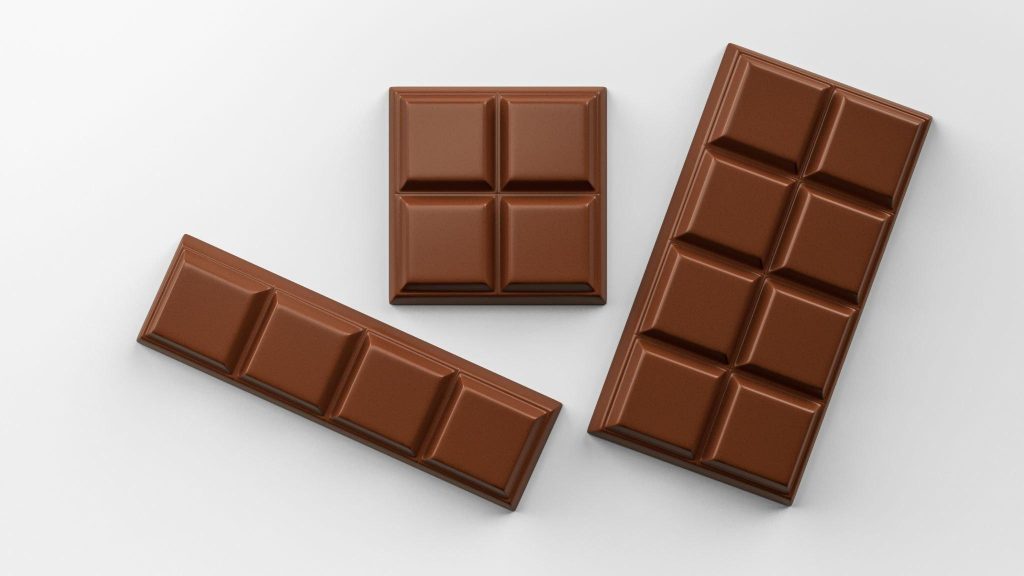
As much as we want to indulge our Huskies with varied treats and titbits, it’s crucial to remember that not all human foods are safe for our furry friends. Just like there are superfoods for Huskies, there are also ‘kryptonites’ – foods that can harm or even be fatal. Here’s a guide to navigate the dietary danger zones for Huskies, ensuring their wagging tails stay vibrant and lively.
Toxic Foods
- Chocolate: A well-known canine adversary. Even small amounts can lead to rapid heart rate, seizures, or worse in Huskies.
- Grapes and Raisins: Their toxicity remains a mystery, but consumption can lead to sudden kidney failure.
- Onions and Garlic: These can break down a dog’s red blood cells, leading to anemia.
- Alcohol: Even a tiny amount can cause significant intoxication, leading to vomiting, seizures, or even death.
Foods that Cause Allergies or Sensitivities
Huskies, like all breeds, can develop sensitivities. Common culprits include beef, dairy, wheat, and chicken. Always monitor for signs like itching, digestive upset, or respiratory distress after introducing new foods.
High-fat Foods
- Fatty Cuts of Meat and Bacon: These can lead to pancreatitis in Huskies, a painful and potentially life-threatening condition.
- Avocado: Contains persin, which can cause diarrhea and vomiting in dogs.
Bones and Hard Chews
While it’s tempting to offer a bone for them to gnaw on, bones can splinter and become choking hazards or injure the digestive tract. Opt for vet-approved chews instead.
Alcohol, Caffeine, and Xylitol
Beyond just alcoholic beverages, caffeine found in coffee, tea, and certain medications can be deadly. The artificial sweetener Xylitol, often found in gum and baked goods, can rapidly release insulin, leading to hypoglycemia (low blood sugar).
Being a Husky parent requires a blend of love, care, and knowledge. While this list might seem daunting, by being aware and proactive, you can ensure that mealtime remains both a treat and a health boost for your beloved Husky.
The Importance of Clean Water
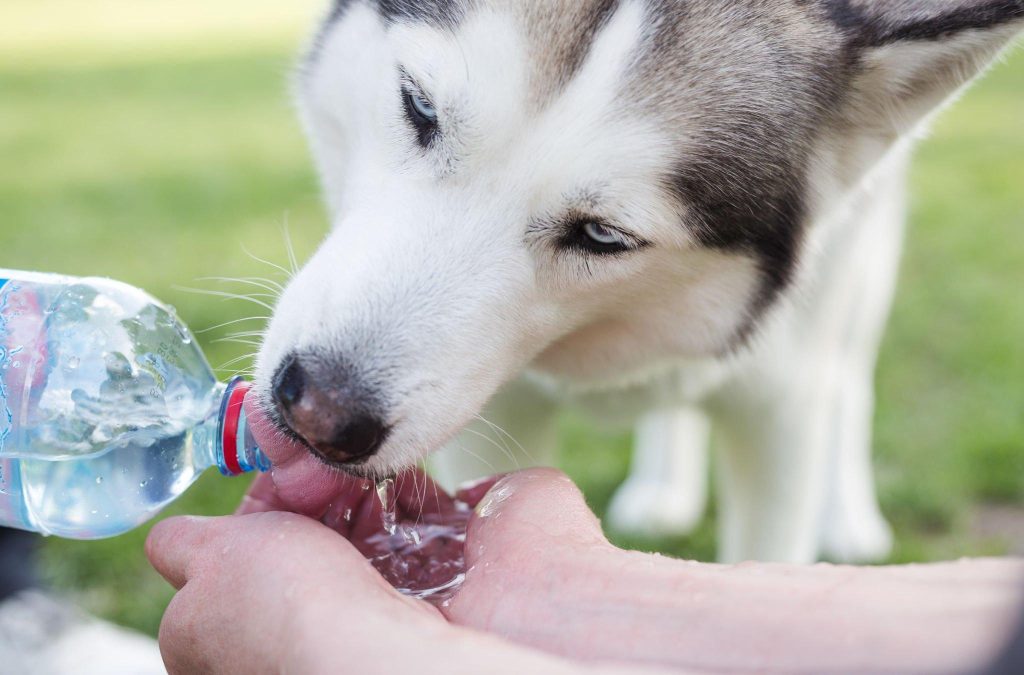
Water, the essence of life, plays a pivotal role in the well-being of every creature on this planet, and our spirited Huskies are no exception. Beyond the allure of tasty treats and well-balanced meals, there’s an elemental elixir that often gets overshadowed, yet it’s paramount for the health and vitality of your Husky: clean, fresh water.
Huskies, with their boundless energy and thick double coat, can get dehydrated quickly, especially during rigorous activities or warmer seasons. Dehydration can lead to a plethora of health issues, ranging from kidney problems to impaired temperature regulation. Moreover, stagnant or unclean water can harbor harmful pathogens, parasites, and toxins that can adversely affect your Husky’s health, leading to diseases like Giardia or Leptospirosis.
Ensuring a constant supply of fresh water is more than just filling up their bowl every morning. It’s about regularly checking the water’s cleanliness, ensuring the bowl itself is clean, and being mindful of the water sources your Husky might access during walks or playtimes. If you’re on the move or hiking, carry filtered water for your Husky and discourage them from drinking from unknown sources like puddles or streams.
In the grand symphony of canine health, water might seem like a background note, but it holds the melody together. By prioritizing clean water, you’re not just quenching your Husky’s thirst; you’re nourishing their very essence, ensuring they remain vivacious and ready for every adventure that comes their way.
Supplements and Vitamins for Huskies
In the journey to achieve peak health for our Huskies, sometimes even a balanced diet may fall short of providing all the essential nutrients. Enter the world of supplements and vitamins: a realm that can bridge this gap, ensuring our snowy-furred friends are fortified from nose to tail.
Omega-3 Fatty Acids
Touted as the superstars of the supplement world, Omega-3s, found in fish oils and flaxseed, are crucial for Huskies. They support a radiant coat, reduce inflammation, and bolster cognitive function. With their ancestral ties to fish-rich diets, this supplement aligns perfectly with a Husky’s nutritional heritage.
Glucosamine and Chondroitin
Huskies, with their athletic prowess, can sometimes face joint-related issues. These compounds naturally support joint health, promoting mobility and reducing the potential for arthritis or joint pain.
Probiotics
A robust digestive system is paramount for overall health. Probiotics enhance gut flora, aiding in digestion, nutrient absorption, and battling potential gastrointestinal issues.
Multivitamins
While a well-balanced diet should cater to most of a Husky’s vitamin needs, a multivitamin can act as a safety net, ensuring they receive all the essentials like vitamins A, E, and B-complex. Always opt for canine-specific formulations.
Antioxidants
Compounds like vitamin C and E, along with selenium, combat oxidative stress, ensuring your Husky remains youthful in spirit and health, fending off age-related ailments.
While supplements and vitamins promise a plethora of benefits, it’s essential to tread with caution. Introducing any new supplement should be a gradual process, monitored closely for any adverse reactions. Moreover, consulting with your veterinarian before making any additions to your Husky’s diet is of utmost importance. They can provide tailored advice, ensuring your Husky reaps all the benefits without any pitfalls.
Homemade vs. Store-Bought Food: The Pros and Cons
In the vibrant world of canine nutrition, there’s an ongoing debate that has Husky parents divided: should we be whipping up meals in our kitchens or relying on the expertise of commercial brands? Each approach carries its merits and challenges. Let’s unravel this culinary conundrum for our Siberian pals.
Homemade Food
Pros:
- Tailored Nutrition: Homemade meals can be customized to your Husky’s specific needs, allergies, or preferences.
- Quality Control: You’re in charge of the ingredients, ensuring fresh, organic, and chemical-free meals.
- Variety: With a plethora of recipes available, your Husky can relish a diverse range of flavors and textures.
Cons:
- Time-Consuming: Crafting balanced meals daily demands time and dedication.
- Potential Imbalances: Without proper knowledge, it’s easy to miss out on essential nutrients or provide disproportionate quantities.
- Storage Issues: Homemade food lacks preservatives, meaning it has a shorter shelf life and requires proper storage.
Store-Bought Food
Pros:
- Convenience: Perfect for busy lifestyles, store-bought food offers quick, no-fuss feeding solutions.
- Nutritionally Balanced: Renowned brands invest heavily in research to ensure their formulas meet the dietary requirements of dogs, including Huskies.
- Longer Shelf Life: With added preservatives (preferably natural), these foods can be stored for extended periods.
Cons:
- Generic Formulations: Not tailored for individual needs, which can be problematic for Huskies with specific allergies or dietary requirements.
- Quality Concerns: Not all commercial foods maintain high standards. Some might use fillers, artificial colors, or low-quality ingredients.
- Cost: High-quality commercial foods can be pricey, especially if feeding a large breed like the Husky.
In the culinary tale of homemade versus store-bought, there’s no definitive winner. It hinges on individual circumstances, priorities, and preferences. Whether you’re a gourmet dog chef or trust the expertise of established brands, the key lies in informed choices. Keep your Husky’s well-being at the forefront, continually educate yourself, and consult with veterinarians or canine nutritionists to ensure a thriving and satisfied pup.
Recognizing Food Allergies and Sensitivities in Huskies
While the robust Siberian Husky emanates vigor and resilience, beneath that thick double coat and piercing eyes, they, too, can fall victim to food allergies and sensitivities. As a Husky guardian, being adept at recognizing these signs can make all the difference in your dog’s well-being. Let’s dive into understanding these ailments and their telltale signs.
The Difference Between Allergy and Sensitivity
- Allergy: This is an immune system response to a food protein. When the body mistakenly identifies a protein as harmful, it triggers an allergic reaction.
- Sensitivity: Also known as food intolerance, this doesn’t involve the immune system. It’s typically a digestive issue where certain foods can cause discomfort or upset.
Common Signs of Food Allergies
- Skin Issues: Look out for redness, itching, or inflammation, especially around the ears, paws, or the base of the tail.
- Ear Infections: Frequent ear infections can be a sign, especially if they recur after treatment.
- Digestive Upsets: Vomiting, diarrhea, or frequent bowel movements might indicate a food allergy.
- Respiratory Distress: Less common, but coughing, sneezing, or nasal discharge can be symptoms.
Signs of Food Sensitivities
- Gas: Excessive flatulence can be a clear sign of food intolerance.
- Bloated Stomach: A swollen abdomen post meals can indicate sensitivity.
- Rumbling Gut: Loud stomach noises can be a sign of digestive distress due to food intolerance.
d. Common Culprits
While any food can potentially trigger an allergic reaction or sensitivity, some usual suspects in Huskies include beef, dairy, wheat, chicken, and soy. Rotating protein sources and keeping a food diary can help pinpoint the offending ingredient.
If you suspect your Husky is battling food allergies or sensitivities, it’s crucial to seek professional advice. A veterinarian can offer guidance, run tests, and help craft a diet that side steps these issues, ensuring your Husky leads a life full of vigor, devoid of dietary discomfort.
Frequently Asked Questions (FAQs) about Husky Diet
In the world of canine nutrition, particularly for the majestic Husky, there’s a wealth of knowledge to be uncovered. As Husky guardians continually strive to offer the best for their furry companions, certain questions often arise. Here are answers to some of the most common queries:
1. How often should I feed my Husky?
Adult Huskies typically thrive on two meals a day, while puppies, with their rapid growth and boundless energy, may require three to four smaller portions. However, always monitor your dog’s weight and activity level and adjust feeding schedules accordingly.
2. Can Huskies eat a vegetarian or vegan diet?
While dogs are biologically omnivores, Huskies have a lineage adapted to a meat-rich diet. A vegetarian or vegan diet can be challenging to balance and might miss essential nutrients. If considering such a diet, consultation with a veterinarian or canine nutritionist is paramount.
3. Do Huskies require a high-protein diet?
Yes, Huskies, with their athletic build and high energy levels, benefit from a protein-rich diet. It supports muscle development and provides sustained energy. Look for quality protein sources like fish, poultry, or lean meats.
4. Is grain-free food recommended for Huskies?
The grain-free trend has gained popularity, but it’s not necessarily a one-size-fits-all. Some Huskies might thrive on grain-free formulas, especially if they have grain allergies. However, grains like rice, barley, or oats can be beneficial and provide essential nutrients.
5. How can I tell if a commercial dog food brand is high-quality?
Look for brands that list whole protein sources as primary ingredients, avoid unnecessary fillers, have a good balance of essential nutrients, and are free from artificial additives. Reviews, certification labels, and consultation with veterinarians can also guide you to reputable brands.
Navigating the vast landscape of Husky nutrition can be daunting, but armed with the right knowledge, you’re well on your way to ensuring a healthy, happy, and high-spirited companion by your side.
Conclusion
Embarking on the nutritional journey for your Siberian Husky can seem like trekking through their native snowy landscapes—full of challenges but equally rewarding. By harnessing the knowledge of their ancestral diet, recognizing the importance of clean water, understanding their unique dietary needs, and staying vigilant about potential allergies, you’re equipping yourself with the tools for their optimal well-being.
In the evolving realm of canine nutrition, it’s essential to keep abreast of new research and insights. But, at the heart of it all lies a simple truth: feeding your Husky with love, care, and informed choices will ensure they remain by your side, spirited and healthy, for all the adventures that lie ahead.
